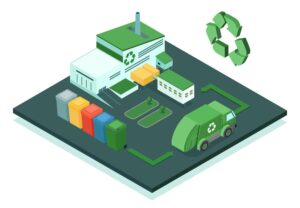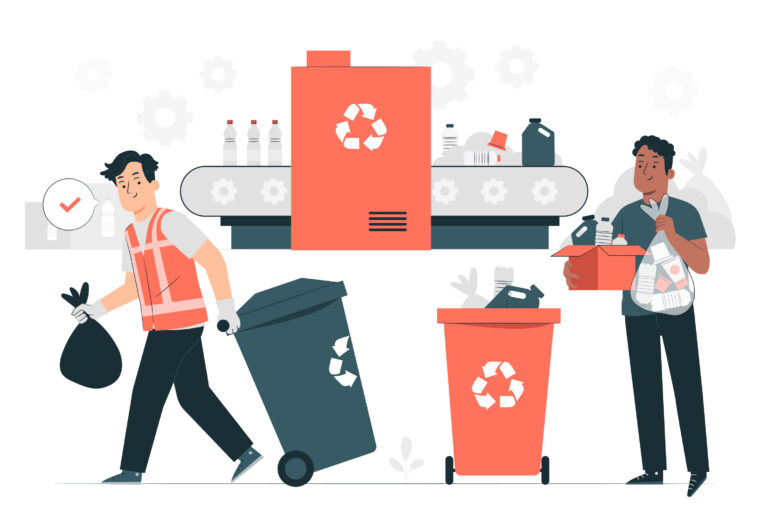Introduction:
Waste management is an ever-evolving field, driven by the need to minimize environmental impact, enhance sustainability, and improve efficiency. In today’s world, waste management companies are embracing cutting-edge technologies and innovative strategies to address these challenges head-on. In this blog, we will explore the latest trends and innovations shaping the future of waste management in Duval County.
-
Smart Bins and IoT Integration
The Internet of Things (IoT) is revolutionizing the waste management industry in Duval County. Smart bins equipped with sensors and connected to a central system are becoming increasingly common. These bins can monitor their fill levels in real-time, enabling waste collection services to optimize routes and reduce unnecessary pickups. This not only saves time and resources but also reduces carbon emissions associated with transportation.
-
Waste-to-Energy Technologies
Duval County is transitioning from traditional landfilling and incineration methods to more sustainable waste-to-energy technologies. These innovations convert waste into valuable resources, such as electricity or heat. Anaerobic digestion, gasification, and pyrolysis are among the emerging technologies that offer a cleaner and more environmentally friendly way to handle waste while generating energy. 
-
Recycling Automation
Robotic systems are playing a pivotal role in streamlining recycling processes in Duval County. These robots can identify and sort recyclable materials with remarkable accuracy and speed. By automating the sorting process, recycling facilities can increase the efficiency of their operations and reduce contamination in recycled materials.
-
Advanced Data Analytics
Data analytics and machine learning are optimizing waste management operations in Duval County. Predictive analytics forecast waste generation patterns, helping municipalities and waste management companies allocate resources more effectively. Additionally, analytics identify trends in recycling behavior, allowing for targeted educational campaigns to improve recycling rates.
-
Circular Economy Practices
Duval County is embracing the concept of a circular economy to minimize waste generation and promote sustainable resource use. Instead of the traditional linear approach of take-make-dispose, a circular economy focuses on reducing, reusing, and recycling materials to keep them in circulation. This approach minimizes waste generation and promotes sustainable resource use.
-
Sustainable Packaging Solutions
To combat the proliferation of single-use plastics and non-recyclable packaging materials, Duval County is exploring innovative packaging solutions. Biodegradable and compostable materials are being developed to replace traditional plastics, reducing the environmental impact of packaging waste. 
-
Community Engagement and Education
Duval Waste Management recognizes the importance of community engagement and education programs in promoting sustainable waste management practices. These initiatives empower individuals and businesses to make informed choices about waste reduction, recycling, and responsible disposal.
-
Decentralized Waste Treatment
Decentralized waste treatment solutions are gaining popularity in Duval County, especially in rural and remote areas. These systems allow for on-site treatment and conversion of waste into useful resources, reducing the need for long-distance transportation and central waste processing facilities.
-
Zero-Waste Initiatives
Zero-waste initiatives are gaining momentum in Duval County as businesses and municipalities set ambitious goals to reduce waste generation. These programs aim to minimize waste through source reduction, recycling, and composting, enhancing environmental credentials and sustainability.
-
Legislative and Regulatory Changes
Governments in Duval County are enacting stricter waste management regulations to address environmental concerns. These regulations push waste management companies to adopt more sustainable practices and invest in innovative technologies, promoting responsible waste management.
Challenges and Considerations:
While these trends and innovations hold promise for the future of waste management in Duval County, several challenges must be addressed. These include the costs and investments required for implementing new technologies, changing consumer behavior and attitudes towards waste, infrastructure limitations, and navigating evolving regulatory landscapes.
Conclusion:
Waste management companies in Duval County are filling the future with promise and potential. With continued investment in research, infrastructure, and community engagement, waste management companies are at the forefront of innovative solutions. Smart bins, waste-to-energy technologies, recycling automation, data analytics, circular economy practices, and sustainable packaging solutions are just some of the trends and innovations shaping the industry. Despite challenges, the commitment to a cleaner and more sustainable future drives the waste management sector to find creative and effective ways to reduce waste, minimize environmental impact, and improve efficiency.
FAQs about Duval Waste Management
Q: What initiatives is Duval County undertaking to improve waste management?
A: Duval County is implementing various initiatives, including the integration of smart bins, adoption of waste-to-energy technologies, automation of recycling processes, and promotion of circular economy practices.
Q: How does Duval County engage the community in waste management efforts?
A: Duval County engages the community through educational programs, workshops, and outreach initiatives to raise awareness about waste reduction, recycling, and responsible disposal practices.
Q: What are the benefits of waste-to-energy technologies in Duval County?
A: Waste-to-energy technologies in Duval County convert waste into valuable resources such as electricity or heat, reducing reliance on landfilling and traditional incineration methods while generating renewable energy.
Q: How does Duval County address challenges related to packaging waste?
A: Duval County explores sustainable packaging solutions, including the development of biodegradable and compostable materials, to combat the proliferation of single-use plastics and non-recyclable packaging materials.
Q: What role do legislative and regulatory changes play in Duval waste management?
A: Legislative and regulatory changes in Duval County drive waste management companies to adopt more sustainable practices and invest in innovative technologies, promoting responsible waste management and environmental stewardship.

